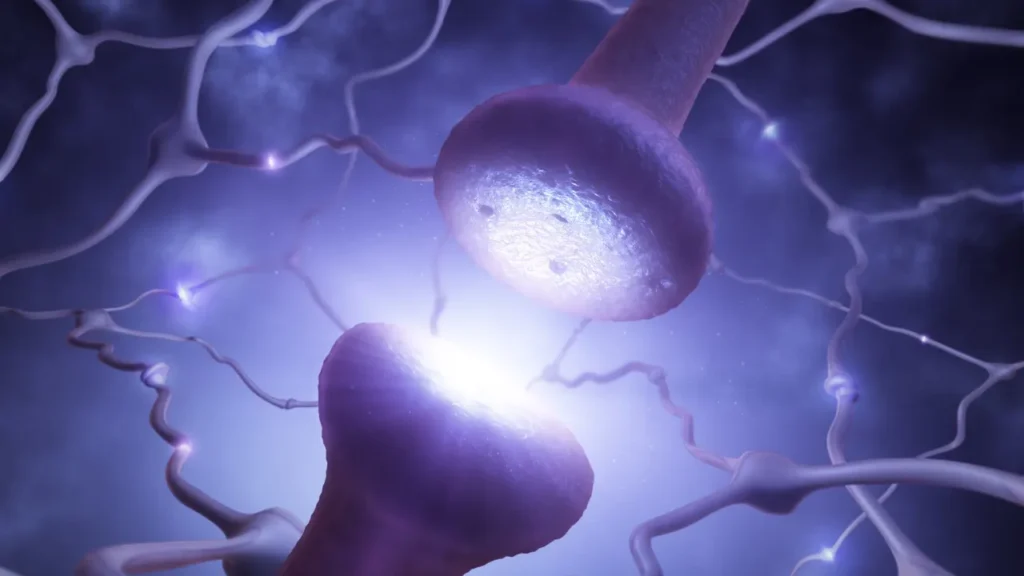Sceletium tortuosum, sometimes referred to as “Kanna,” is a succulent plant that is indigenous to Southern Africa. It has been used for millennia to improve mood and treat numerous physical and mental conditions. Kanna has been more well-known recently as a nootropic substance that can improve mental acuity, concentration, and alertness. The nature of Kanna, its health advantages, the best dosage, any potential negative effects, any possible drug interactions, and other pertinent facts about its safe use will all be covered in this article.
You May Also Like:
Keep Your Brain Young With the 5 Most Powerful Nootropic Supplements
Finding the Best Supplements for Brain Fog After COVID: 5 Top Brands Reviewed
Kanna: Benefits, Dosage, Side Effects, Drug Interactions, And Other Important Information is an original (NootropicsPlanet) article.
Nature of Kanna
The alkaloids mesembrine, mesembrenone, mesembrenol, and tortuosamine are among those found in Kanna. It is thought that these alkaloids are what cause Kanna’s psychedelic effects. The most prevalent alkaloid in Kanna, mesembrine, has been demonstrated to be a serotonin reuptake inhibitor (SRI), which means it stops serotonin from being reabsorbed in the brain, raising serotonin levels. The neurotransmitter serotonin is important for controlling mood, appetite, and sleep.
Health Benefits of Kanna
Pain, headaches, fever, and anxiety are just a few of the physical and mental conditions that can be treated with Kanna traditionally. Kanna has grown in popularity as a nootropic substance in recent years because of its capacity to improve cognitive performance. Kanna has been found to promote cognitive function, lessen stress and anxiety, and improve mood.
According to one study in the Journal of Ethnopharmacology, Kanna increased executive function and cognitive flexibility in healthy people. Another study found that Kanna improved the symptoms of anxiety and sadness in persons with moderate to severe anxiety, according to a report in the Journal of Alternative and Complementary Medicine. Kanna is also potentially helpful in aiding sleep.

Chemistry of Kanna
The alkaloids mesembrine, mesembrenone, mesembrenol, and tortuosamine are among those found in Kanna. The plant’s leaves and stems, from which Kanna extracts are commonly prepared, are where the alkaloids are concentrated.
The most prevalent alkaloid in Kanna, mesembrine, is thought to be in charge of many of the psychedelic effects. It is a serotonin reuptake inhibitor (SRI), which means that it stops serotonin from being reabsorbed in the brain. Serotonin levels rise as a result, and this has a range of consequences on mood, hunger, and sleep.
Additionally, Kanna contains alkaloids that have weak opioid receptor agonist activity, which allows them to bind to and activate opioid receptors in the brain. This could be a factor in Kanna’s ability to reduce pain.
Physiological Mechanisms of Action
The effects of kana on the body and brain are intricate and still little understood. The serotonin, dopamine, and opioid systems in the brain are just a few of the neurotransmitter systems that Kanna is thought to affect, according to study.
Serotonin levels in the brain rise as a result of mesembrine’s SRI activity in Kanna. This may improve emotions of wellbeing and reduce anxiety and sadness, among other mood-altering effects. Serotonin is also involved in controlling food and sleep, which may explain how Kanna affects these functions.
Less is known about Kanna’s effects on the dopamine system, however some research points to a potential increase in dopamine release in specific brain regions. Dopamine’s crucial involvement in motivation and reward processing makes it a neurotransmitter that may help explain how Kanna affects cognition and mood.
The effects of Kanna on pain alleviation and relaxation may possibly be attributed to its modest opioid receptor agonist action.
In general, Kanna has complicated impacts on the body and brain that probably include a number of diverse mechanisms of action. To completely comprehend how Kanna functions and how it can be taken as a nootropic supplement safely and successfully, more research is necessary.

Optimal Dosage of Kanna
Age, weight, and general health are just a few of the variables that can influence the ideal Kanna dosage. It is advised to begin with a modest dose and raise it gradually as necessary. A normal starting dose of Kanna is 8-25mg mg per day. It is advised to take Kanna in the morning or early afternoon to avoid disrupting sleep because its effects might last up to 8 hours.
It is significant to note that there is little data on the safety and effectiveness of Kanna, which is not regulated by the FDA. As a result, it is advised to speak with a healthcare professional before taking Kanna, particularly if you are taking any medications or have any underlying medical issues.
Side Effects of Kanna
While using Kanna in the authorized doses is generally regarded as safe, there are some possible adverse effects to be aware of. These include the potential for nausea, headaches, vertigo, and dry mouth. Antipsychotics, blood pressure meds, and antidepressants are just a few of the drugs that potentially interact with kana. If you are currently taking any drugs, it is crucial to consult a healthcare professional before using Kanna.
With continued usage of Kanna, there is also a chance of addiction and withdrawal symptoms. To completely comprehend Kanna’s potential for addiction, more study is necessary.

Potential Substance Interactions with Kanna
Alcohol, caffeine, and some medicines are just a few of the things that can interact with kana. It’s vital to refrain from taking Kanna with other medications or supplements without first talking to your doctor.
Alcohol: Combining Kanna with alcohol can make you more likely to experience nausea, dizziness, and other negative effects.
Caffeine: Combining Kanna with caffeine might intensify the stimulant effects of both drugs, which can raise blood pressure and heart rate.
Medication interactions: Antidepressants, antipsychotics, and blood pressure meds are just a few of the drugs that Kanna may interact with. If you are taking any medication, it’s crucial to see a doctor before taking Kanna.s.
Responsible Use of Kanna
It’s crucial only to buy Kanna supplements from reliable vendors who can tell you where the product came from and how high-quality it is. Additionally, it’s crucial to adhere to the dosage recommendations and not go overboard.
Women who are pregnant or nursing shouldn’t use Kanna, and kids shouldn’t use it either. Additionally, it’s crucial to avoid using heavy machinery or driving while under the influence of Kanna because it might make you feel lightheaded and impair your cognitive abilities.
Kanna:
Conclusion
Sceletium tortuosum, commonly known as Kanna, presents a range of potential benefits, particularly in enhancing cognitive function and mood regulation through its interaction with serotonin and dopamine neurotransmitters.
While generally considered safe within the recommended dosages, it is important for users to be aware of possible side effects and interactions with other substances. As research continues to unfold, those interested in Kanna should consult healthcare professionals before integration into their health regimen.

References:
- Molecules. (2021). A Chewable Cure “Kanna”: Biological and Pharmaceutical Properties of Sceletium tortuosum. Retrieved from: https://doi.org/10.3390/molecules26092557
- Examine.com. (n.d.). Kanna Dosage Information. Retrieved from: https://examine.com/supplements/Kanna/#dosage-information
- Gaia Herbs. (2023). What Is Kanna? Retrieved from: https://www.gaiaherbs.com/blogs/seeds-of-knowledge/what-is-Kanna
Important Note: The information contained in this article is for general informational purposes only, and should not be construed as health or medical advice, nor is it intended to diagnose, prevent, treat, or cure any disease or health condition. Before embarking on any diet, fitness regimen, or program of nutritional supplementation, it is advisable to consult your healthcare professional in order to determine its safety and probable efficacy in terms of your individual state of health.
Regarding Nutritional Supplements Or Other Non-Prescription Health Products: If any nutritional supplements or other non-prescription health products are mentioned in the foregoing article, any claims or statements made about them have not been evaluated by the U.S. Food and Drug Administration, and such nutritional supplements or other health products are not intended to diagnose, treat, cure, or prevent any disease.


